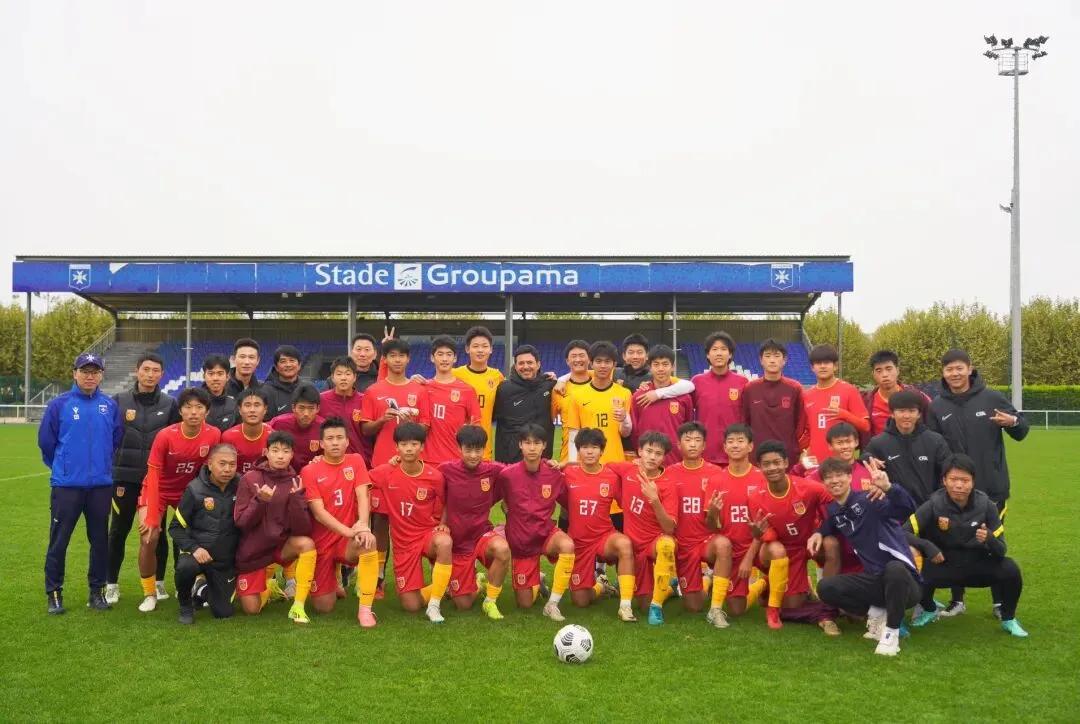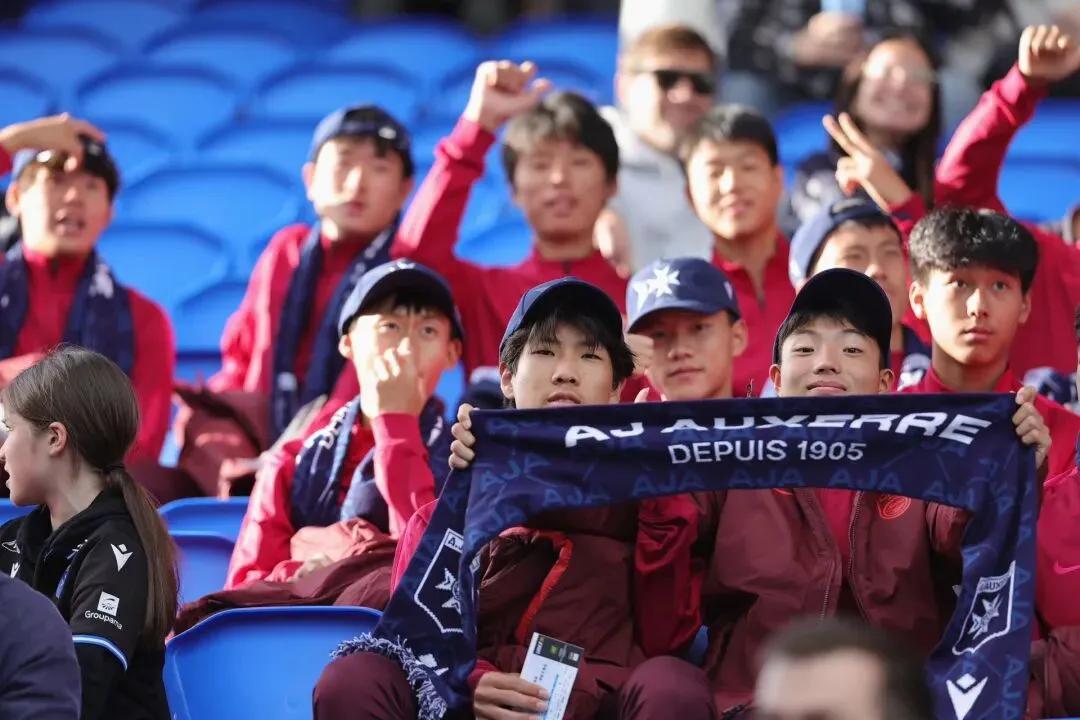Zhou Yunjie: "Auxerre aims to be the gateway for Chinese football’s overseas expansion"

Written by Liu Xiangyu In recent years, Auxerre has focused on enhancing ties with Chinese football. Last month, the club dispatched personnel to Beijing to engage with the Chinese Football Association and the Chinese Football Federation, seeking new ways to open and develop professional leagues. What expectations does Zhou Yunjie, chairman of Auxerre’s board, have for the "China Rhino Hope Team" training stint in France?

◆ Football Magazine: How was this project initially driven?
Zhou Yunjie: The concept had been developing for quite some time. Back in 2019, I applied to the French Football Federation to form a Chinese youth team (planned for ages 17 to 18) to participate in local leagues. The Burgundy region approved it, but for various reasons, it never materialized. Thanks to the full support from the Chinese Football Federation and Shandong Football Association, the project was finally realized.
◆ You have invested a lot in this project. From a club management perspective, returns are important. Where do you expect the benefits to come from?
The core of the project is not immediate profit but laying a solid foundation for Chinese football. Currently, Chinese players have no market value in Europe, so discussing commercial benefits now is unrealistic. Japan can easily form four or five teams from their players in major European leagues, but we can’t even assemble one. Therefore, it’s crucial to give our young players opportunities to compete against strong opponents. This is the key: providing better overseas platforms and chances for Chinese players to improve the national team’s overall level.

Auxerre club has undertaken hosting the Chinese U14 and U15 national male football selection teams for overseas training camps.
◆ Chinese football youth training going abroad has two models: team-based and individual overseas development. Is Auxerre trying both?
We are doing both. Chinese football currently lacks successful experience, so we have to feel our way forward. We are trying different approaches to truly integrate players into the European league system.
◆ Based on France’s youth training experience, where do you think Chinese football’s problems lie?
There are two key issues. First, Chinese kids don’t have enough match intensity; second, they play "just to play," focusing too much on results. Actually, winning championships at ages 14 to 16 has little real value. We should let them rotate playing time to gain experience and not fear losing. High-level training and competition are what truly foster growth.
◆ Recently, the French Football Federation president visited China and held talks with the Chinese Football Association and the Chinese Football Federation, reaching cooperation intentions. Is the China Rhino Hope Team’s trip to France a result of those talks? What role does Auxerre play in Sino-French football cooperation?
This is an important part of the cooperation between the two federations and shows their commitment. We need the French Football Federation’s support to let Chinese kids access advanced international football concepts and platforms early on—if they can’t play for the first team, they start with youth teams to gain experience. I have owned Auxerre for nine years, aiming to make it a bridgehead for Chinese football’s overseas expansion and contribute to revitalizing Chinese football. It’s an honor to serve Chinese football.

◆ Football Magazine: Was the project preparation smooth? Are there long-term plans?
Zhou Yunjie: Honestly, the project preparation was relatively rushed, but we will persist and try various approaches. We have reached a period when Chinese football values youth training and open cooperation. In the long run, I hope a domestic youth league can be established, with the champion team each year forming the squad to participate in Auxerre, rotating teams annually to continuously supply talent and gradually feed the national team.
◆ Besides coordinating matches, what other support does Auxerre provide to help players integrate better?
We have prepared comprehensively. For living arrangements, a villa has been designated for the Chinese team, with the five-star red flag flying on the flagpole outside. We also have Chinese chefs and management staff to ensure the kids feel the warmth of their homeland abroad. Additionally, we provide French language teachers and specialized tutors so the kids can balance academics and training. In training, the Chinese team practices alongside Auxerre’s youth squads to help them adapt quickly to the French training rhythm.

Auxerre club invited young Chinese players to watch Ligue 1 matches and participate in the European Youth League with the U19 squad.
◆ Are you worried that Chinese players might feel overwhelmed by the skill gap once they arrive, since their opponents are high-level French teams?
Football development is a long-term process; focusing on wins and losses now is pointless. We look to whether we can qualify for the World Cup in four to eight years and reach the quarterfinals in 15 years. Also, when the U14 and U15 national teams trained at Auxerre, our youth director was surprised that three or four players could fully join Auxerre’s youth system, showing Chinese kids have potential. The key is to maintain and improve their level continuously.
◆ The China Rhino Hope Team’s stay in France will last until the end of April next year. Do you think this period is crucial for the players’ development?
It is very important, but continuous growth requires the entire Chinese football system’s attention. This is just another attempt, depending on how well players integrate into matches and local culture. Auxerre has a complete youth training system from the bottom up. Our team must integrate and then gradually improve. If every year we can discover or develop two to three high-level players and maintain a high-quality training and competition environment, in three to four years, seven or eight players capable of competing in European competitions will emerge. More such players will raise the national team’s level.

Seventeen-year-old Wei Xiangxin previously trialed at Auxerre club.


Wonderfulshortvideo
Class personified.


chelsea 3-3 leeds united 4-1 wolves


yamal getting better raphinha goals today raphinha vs osasuna yamal barcelona highlights yamal pass today


marc bernal highlights bernal barcelona vs frankfurt yamal goal today yamal highlights today lewandowski goal ferran goal raphinha goal barcelona champions league


jamie carragher salah interview monday night football carragher mnf salah press conference salah benched slot interview slot press conference


Griezmann with the cool finish 🥶


kounde goals today yamal assist today rashford assist today barcelona 2-1 frankfurt








 Links
Links
 Contact
Contact
 App
App


